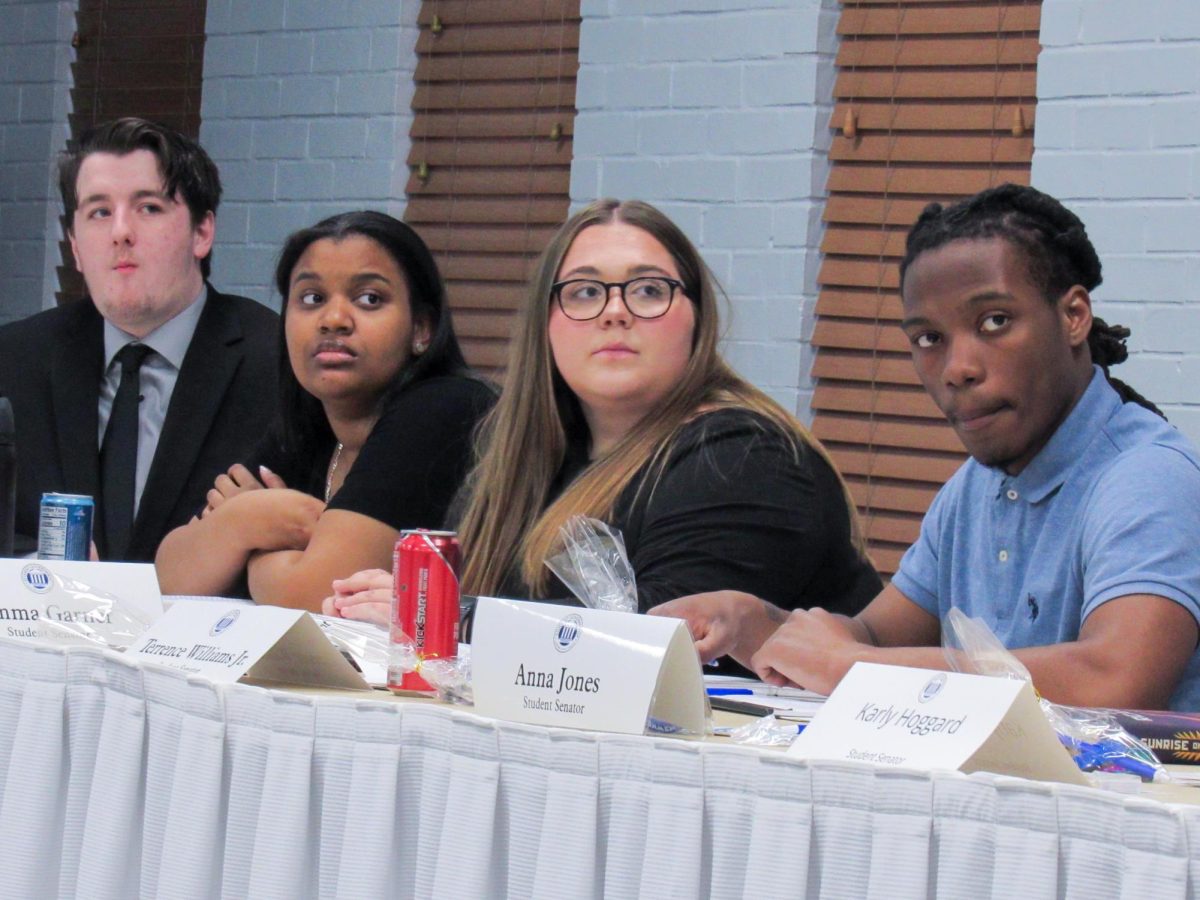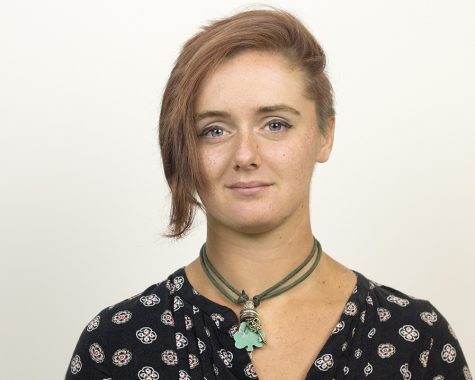Big personal changes start with small victories
October 3, 2017
Recently, a high school student who lives near me spiraled into a hard time in his life. A promising but awkward (as we all were as teens) young man, he began clinging too hard to new friends and exploring his new place in adult society in sometimes concerning ways. In the end, this student was expelled from his school after violating some hardline rules. Whenever I see him now, he speaks with a hint of shame about his regrets.
Some people make it through adolescence without making big, long-lasting mistakes or failures. But in some way or another, we all make mistakes that are big to us, and these mistakes always take time and work to remedy.
Fixing mistakes is usually a matter of acknowledging harm done, even if that harm was unintended. Learning to forgive yourself for that harm is another important step, though, and it can be harder to accomplish; forgiving yourself regardless of intention can be challenging.
But mistakes are made through oversight and lack of planning. What of the faults, the failures and the injuries people inflict purposefully?
These faults are often more harshly judged than even the most egregious of errors, and for good reason: intentional injury to others and to society reveals unsavory things about a person’s thoughts and feelings.
But faults can be fixed, and slights can be repaid. It might take time to make amends, but you can always fix the things you did in the past.
I am a firm believer in the idea that humans do not stay the same their entire lives. Psychologically, we are flexible people: our memories are fallible, our personalities subject to those we interact with and our values constantly changing to reflect new events and information. While this information can be concerning for people who value their consistency and fear personal change, this is good news for everyone who has ever been disappointed in a personal failure.
You can change. The person who made mistakes does not have to be you forever—you can leave that part of yourself behind. And change starts at the bottom.
Changing yourself for the better begins with the small habits, the ones that build up over time into big problems. For instance, I began to accomplish one task early in the morning during the summer in order to combat my low self-esteem.
If I got up early and watered the tomato plants or went to the store for toothpaste, I got to spend the rest of the day knowing that at least one thing on my to-do list was finished. In the grand scheme, one small item was not much, but it was a major boost for my ego day-to-day, and that one item per morning helped me start being more productive and healthy for the rest of the day.
For more serious personal problems—for instance, fixing a jealous streak or quelling lifelong anger—you can focus on specific manifestations of that issue. If you identify one time your personal problem affects you and the people around you, you can try to control the situation, testing coping mechanisms and thinking strategies without the pressure involved with changing your entire lifestyle or outlook.
Of course, you must repeat this process over and over to make a major change, but breaking it down into situations and instances can make all the difference.
And remember, of course, that self-improvement is always praiseworthy. Do not self-flagellate over slow progress or backwards momentum—if the end result is better than the start, that is all that matters.
Shelby Niehaus is a senior English language arts major. She can be reached at 581-2812 or scniehaus@eiu.edu.













![[Thumbnail Edition] Junior right-handed Pitcher Lukas Touma catches at the game against Bradley University Tuesday](https://www.dailyeasternnews.com/wp-content/uploads/2025/03/MBSN_14_O-e1743293284377-1200x670.jpg)

![[Thumbnail Edition] Senior Foward Macy McGlone, getsw the ball and gets the point during the first half of the game aginst Western Illinois University,, Eastern Illinois University Lost to Western Illinois University Thursday March 6 20205, 78-75 EIU lost making it the end of their season](https://www.dailyeasternnews.com/wp-content/uploads/2025/03/WBB_OVC_03_O-1-e1743361637111-1200x614.jpg)







































![The Weeklings lead guitarist John Merjave [Left] and guitarist Bob Burger [Right] perform "I Am the Walrus" at The Weeklings Beatles Bash concert in the Dvorak Concert Hall on Saturday.](https://www.dailyeasternnews.com/wp-content/uploads/2025/03/WL_01_O-1200x900.jpg)
![The team listens as its captain Patience Cox [Number 25] lectures to them about what's appropriate to talk about through practice during "The Wolves" on Thursday, March 6, in the Black Box Theatre in the Doudna Fine Arts Center in Charleston, Ill.](https://www.dailyeasternnews.com/wp-content/uploads/2025/03/WolvesPre-12-1200x800.jpg)
















